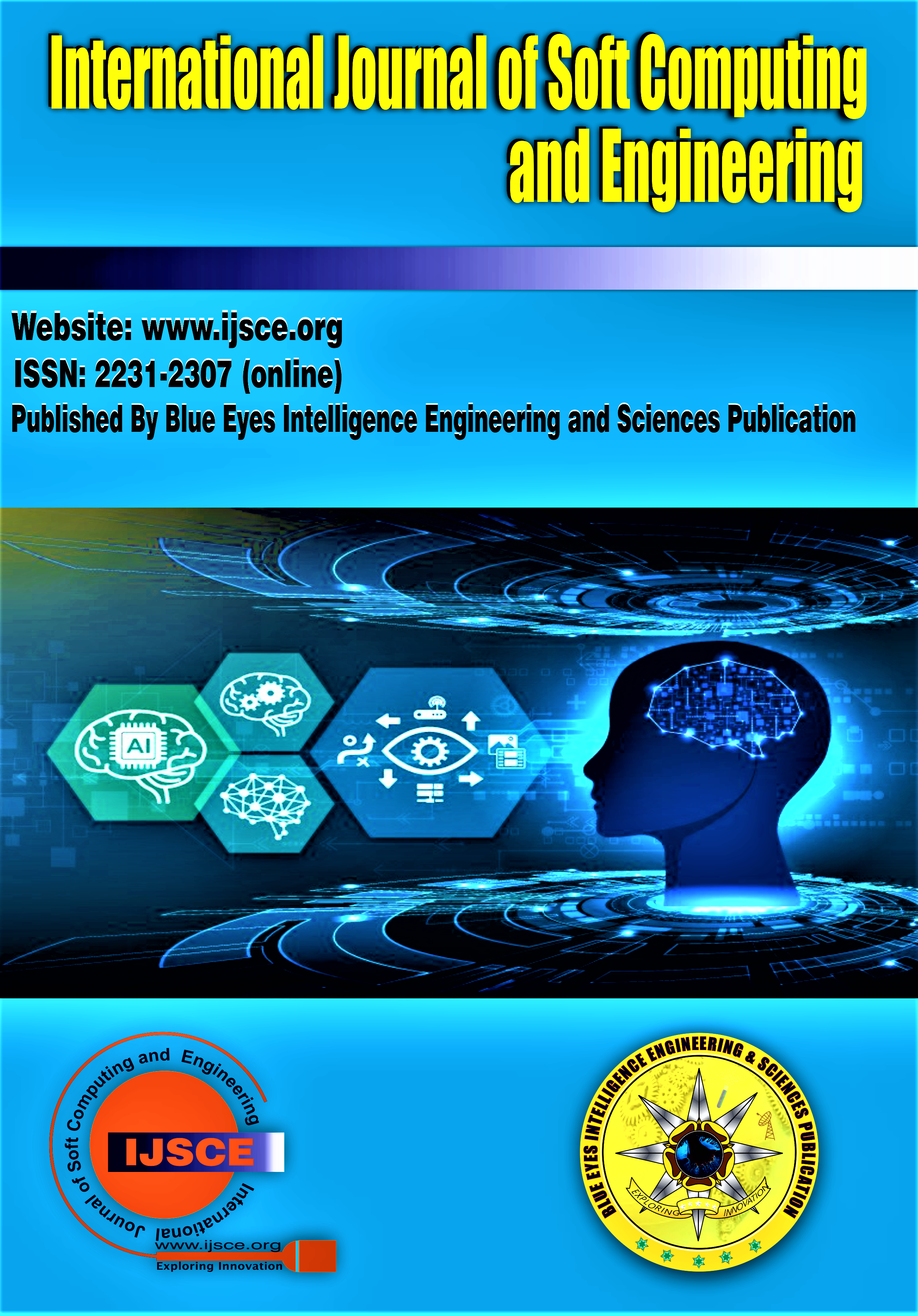Effectiveness in Collaborative Framework for Non-Invasive in AI Algorithms
Main Article Content
Abstract
The topic of study and practice known as "privacy-preserving machine learning (PPML)" is devoted to creating methods and strategies that enable the training and application of machine learning models while protecting the privacy of sensitive data for convolution neural network and Machine learning algorithms. Garbled worlds" is a concept primarily used in the context of privacy-preserving machine learning (PPML). It refers to a technique used to protect the privacy of individual data points during the training process of machine learning models. Garbled worlds allow organizations or individuals to collaborate and train machine learning models using their combined datasets without sharing the raw data. This is particularly important in scenarios where data privacy regulations or concerns prohibit the sharing of sensitive information. By using garbled worlds, organizations can leverage the collective knowledge in multiple datasets while protecting the privacy of individuals whose data contributes to the training process. This technique helps balance data privacy and the utility of machine learning models in various applications. The effectiveness and adaptability of ABY3 (The mixed protocol framework for machine learning) enable users to select several cryptographic protocols based on their unique needs and limitations. In comparison to other safe multi-party computation frameworks, it minimizes computational and communication costs while maintaining a high level of security. The viability of our system is demonstrated by the enhanced benchmarking of the previously described algorithms in contrast to ABY3.
Downloads
Article Details
Section

This work is licensed under a Creative Commons Attribution-NonCommercial-NoDerivatives 4.0 International License.
How to Cite
References
Gentry, C. (2009). A Fully Homomorphic Encryption Scheme. Ph.D. thesis, Stanford University. https://doi.org/10.1145/1536414.1536440
Yao, A. C. (1982). Protocols for secure computations. In Proceedings of the 23rd Annual Symposium on Foundations of Computer Science (FOCS), 160-164. https://doi.org/10.1109/SFCS.1982.38
Goldreich, O., Micali, S., & Wigderson, A. (1987). How to play any mental game or A completeness theorem for protocols with honest majority. In Proceedings of the 19th Annual ACM Symposium on Theory of Computing (STOC), 218-229. https://doi.org/10.1145/28395.28420
Damgård, I., & Jurik, M. (2001). A generalisation, a simplification and some applications of Paillier's probabilistic public-key system. In Proceedings of the 4th International Workshop on Practice and Theory in Public Key Cryptography (PKC), 119-136. https://doi.org/10.1007/3-540-44586-2_9
Pinkas, B., Schneider, T., Smart, N. P., & Williams, S. C. (2009). Secure two-party computation is practical. In Proceedings of the 13th International Conference on Financial Cryptography and Data Security (FC), 250-267. https://doi.org/10.1007/978-3-642-10366-7_15
Lindell, Y., & Pinkas, B. (2009). A proof of security of Yao's protocol for two-party computation. Journal of Cryptology, 22(2), 161-188. https://doi.org/10.1007/s00145-008-9036-8
Ishai, Y., Kushilevitz, E., Ostrovsky, R., & Sahai, A. (2006). Zero-knowledge proofs from secure multiparty computation. SIAM Journal on Computing, 36(5), 1367-1393. https://doi.org/10.1145/1250790.1250794
Bellare, M., Hoang, V. T., & Rogaway, P. (2012). Foundations of garbled circuits. In Proceedings of the 2012 ACM Conference on Computer and Communications Security (CCS), 784-796. https://doi.org/10.1145/2382196.2382279
Damgård, I., Pastro, V., Smart, N. P., & Zakarias, S. (2012). Multiparty computation from somewhat homomorphic encryption. In Proceedings of the 19th Annual International Conference on the Theory and Applications of Cryptographic Techniques (EUROCRYPT), 643-662. https://doi.org/10.1007/978-3-642-32009-5_38
Mohassel, P., & Zhang, Y. (2017). SecureML: A system for scalable privacy-preserving machine learning. In Proceedings of the 2017 ACM SIGSAC Conference on Computer and Communications Security (CCS), 1685-1701. https://doi.org/10.1109/SP.2017.12
Brakerski, Z., Gentry, C., & Vaikuntanathan, V. (2014). (Leveled) fully homomorphic encryption without bootstrapping. In Proceedings of the 3rd Innovations in Theoretical Computer Science Conference (ITCS), 309-325. https://doi.org/10.1145/2633600
Ben-David, A., Lindell, Y., Nof, A., & Pinkas, B. (2020). Secure computation from secret sharing. Journal of Cryptology, 33(1), 89-155.
Rastogi, A., & Bonawitz, K. (2018). Scalable secure multi-party computation for privacy-preserving machine learning. arXiv preprint arXiv:1810.08130.
Mohassel, P., & Rindal, P. (2018). ABY3: A mixed protocol framework for machine learning. In Proceedings of the 2018 ACM SIGSAC Conference on Computer and Communications Security (CCS), 1637-1651.
Araki, K., & Yasuda, K. (2021). Towards efficient multi-party computation over rings with applications to polynomial evaluation. In Proceedings of the 25th International Conference on Financial Cryptography and Data Security (FC), 304-323.
Döttling, N., Malavolta, G., Tschudi, D., & Zikas, V. (2021). Efficient and private multiparty computation on large datasets. In Proceedings of the 2021 IEEE Symposium on Security and Privacy (S&P), 226-245.
Agrawal, S., & Rindal, P. (2020). FASTER: Compressed finite-field arithmetic for faster secure computation. In Proceedings of the 29th USENIX
Boyle, E., Gilboa, N., & Ishai, Y. (2020). Homomorphic secret sharing: Optimizations and applications. In Proceedings of the 2020 IEEE Symposium on Security and Privacy (S&P), 218-235.
Mohassel, P., & Rindal, P. (2017). ABY – A framework for efficient mixed-protocol secure two-partycomputation.
Mohassel, P., & Rindal, P. (2018). ABY3: A Mixed Protocol Framework for Machine Learning. Proceedings of the 2018 ACM SIGSAC Conference on Computer and Communications Security (CCS '18). Security Symposium, 1081-1098. https://doi.org/10.1145/3243734.3243760
Das, S., S, S., M, A., & Jayaram, S. (2021). Deep Learning Convolutional Neural Network for Defect Identification and Classification in Woven Fabric. In Indian Journal of Artificial Intelligence and Neural Networking (Vol. 1, Issue 2, pp. 9–13). https://doi.org/10.54105/ijainn.b1011.041221
Reddy, M. V. K., & Pradeep, Dr. S. (2021). Envision Foundational of Convolution Neural Network. In International Journal of Innovative Technology and Exploring Engineering (Vol. 10, Issue 6, pp. 54–60). https://doi.org/10.35940/ijitee.f8804.0410621
Kumar, P., & Rawat, S. (2019). Implementing Convolutional Neural Networks for Simple Image Classification. In International Journal of Engineering and Advanced Technology (Vol. 9, Issue 2, pp. 3616–3619). https://doi.org/10.35940/ijeat.b3279.129219
R, R., & S H, M. (2021). Plant Disease Detection and Classification using CNN. In International Journal of Recent Technology and Engineering (IJRTE) (Vol. 10, Issue 3, pp. 152–156). https://doi.org/10.35940/ijrte.c6458.0910321
Raj, H., Duggal., A., M., A. K. S., Uppara, S., & S., S. M. (2020). Hand Motion Analysis using CNN. In International Journal of Soft Computing and Engineering (Vol. 9, Issue 6, pp. 26–30). https://doi.org/10.35940/ijsce.f3409.059620





